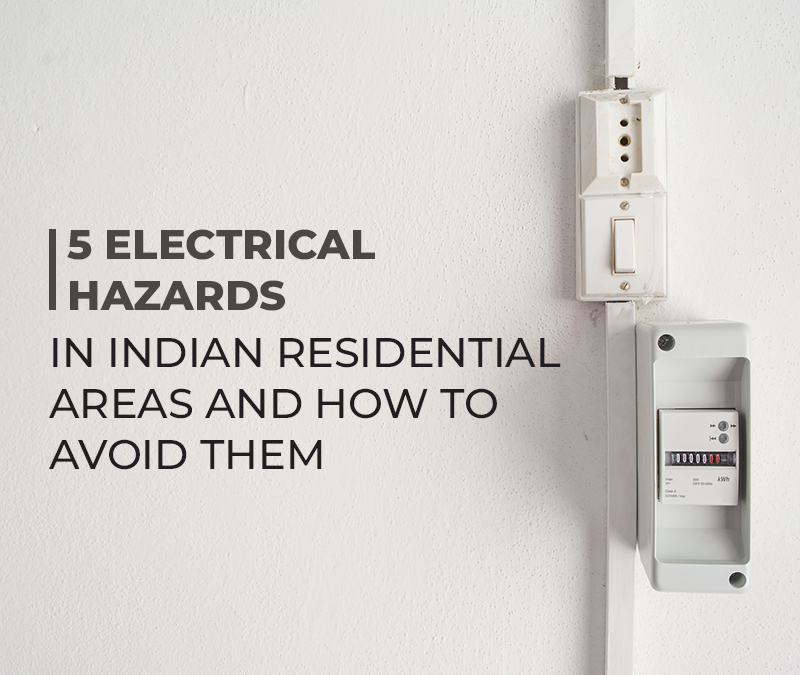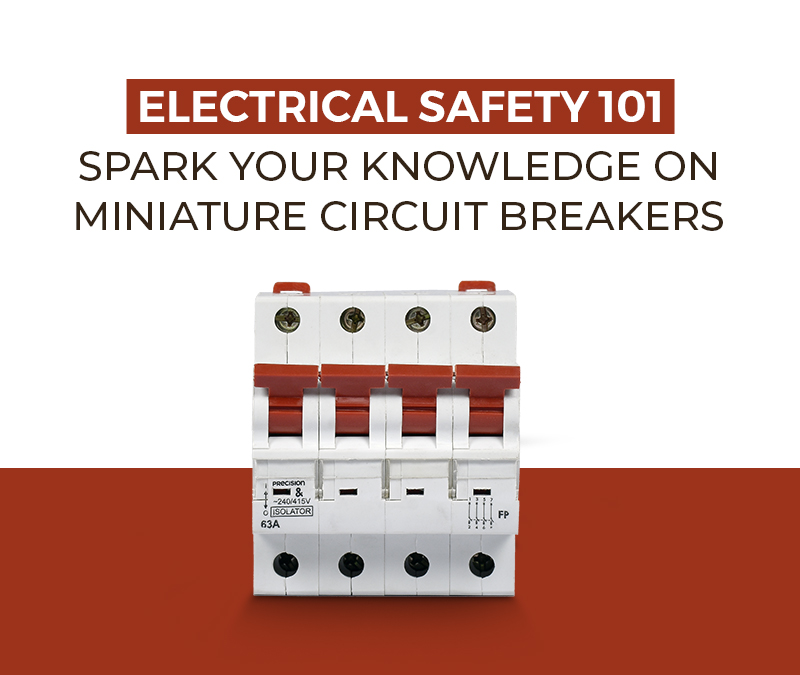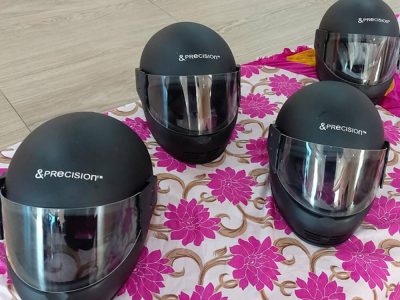
2023 is the Year to Upgrade to Modular Switches
March 29, 2023
3 Spots Where Earthing Plays its Role in Electrical Safety
May 29, 20235 Electrical Hazards in Indian Residential Areas and How to Avoid Them
A basic education in electricity is so important.
Why?
Electrical hazards can pose a frightening risk to your family’s safety—and even your property.
In India, they are a major concern due to the high population density, substandard electrical installations, and a higher probability of unlicensed electricians. According to National Crime Records Bureau’s ADSI 2021, 12,529 people died due to electrocution and 1,657 died from fires caused by electrical short circuit. The number of people who were injured was higher.
We need to reduce these numbers. In this article, we’ll discuss some of the most common electrical hazards in homes and how to avoid them. To begin, it’s essential to identify the most common electrical hazards.
1. Electrical Overload
Electrical overload occurs when too many devices are connected to a single power outlet or extension cord. This can cause overheating, leading to electrical fires or electrocution. To avoid this, ensure that you use electrical accessories such as switches with a proper load capacity. Use multiple power outlets or extension boards if required; these electrical accessories make domestic life easier and solve the many complications that arise from a large number of residents.
2. Damaged Electrical Wires
Electrical wires can get damaged due to wear and tear or rodents. Damaged wires can cause electrical shocks and even fires. Ensure that you check for damaged wires regularly and replace them if required. Do not attempt to repair damaged wires yourself unless you have the necessary training and experience.
3. Electrical Cords Near Water
Electrical cords should never be used near water or damp areas, as this can cause electrical shocks. This is particularly relevant in bathrooms and kitchens, where water is often present. Ensure that all electrical appliances are kept away from water sources and always switch them off before cleaning them.
4. Using Old or Faulty Electrical Appliances
Old or faulty electrical appliances can cause electrical fires and shocks. Ensure that all your electrical appliances are in good working condition and replace them if they are old or faulty. Also, ensure that you buy appliances that are ISI marked and certified by the Bureau of Indian Standards (BIS).
5. Overhead Electrical Lines
Overhead electrical lines can pose a significant risk if they are located near trees or buildings. Ensure that you keep a safe distance from overhead electrical lines and do not attempt to touch them or come close to them.
To avoid electrical hazards, it’s essential to take proper safety measures in every household.
Here are some safety tips to follow:
Install a Residual Current Circuit Breaker (RCCB)
A residual current circuit breaker is a safety device that can detect and prevent electrical shocks. It is highly recommended that you install an RCCB in your home to avoid electrical hazards.
Do Not Attempt DIY Electrical Work
DIY electrical work can be dangerous, and it’s always better to leave it to the professionals. Attempting electrical work without the necessary training and experience can result in accidents and fatalities. If you’re unsure about any electrical work in your home, hire a professional electrician to inspect and repair it. It is always better to be safe than sorry.
Educate Your Children
It’s essential to educate your children about electrical safety and the hazards associated with it. Teach them not to touch electrical appliances with wet hands and keep them away from power outlets and extension cords.
In conclusion, electrical safety is crucial in every Indian household. Electrical hazards can pose a significant risk to your family’s safety and property. By identifying potential electrical hazards and taking proper safety measures, you can make sure the community finds an accommodating calm.



































































